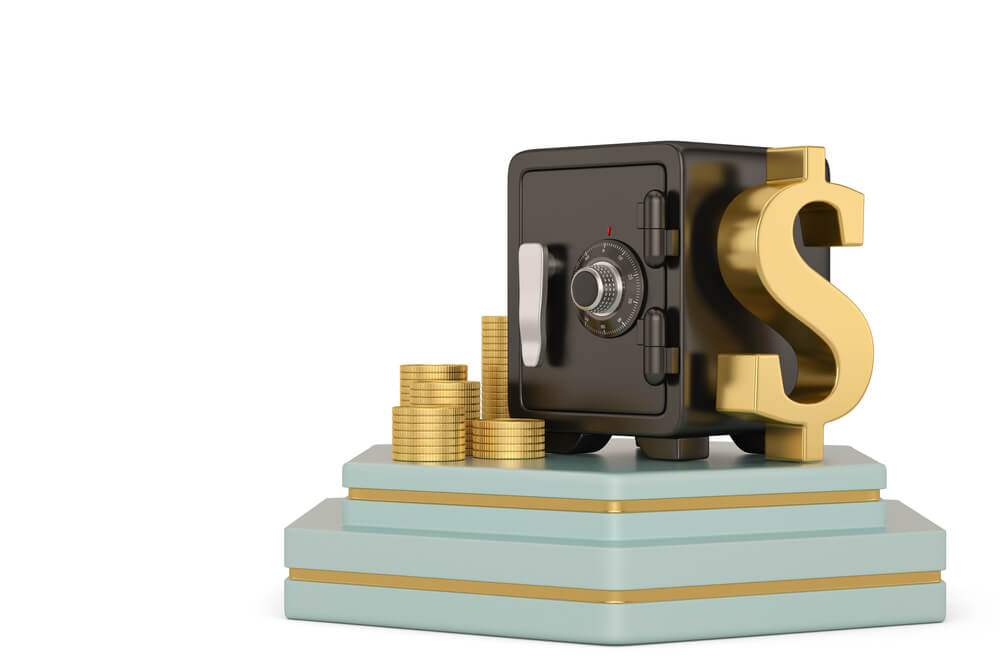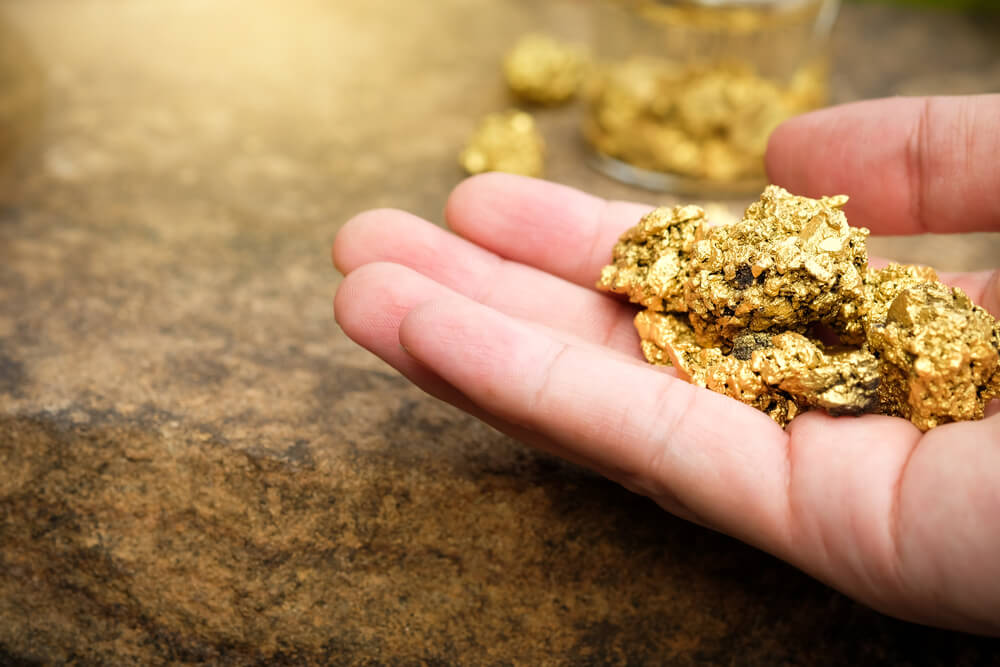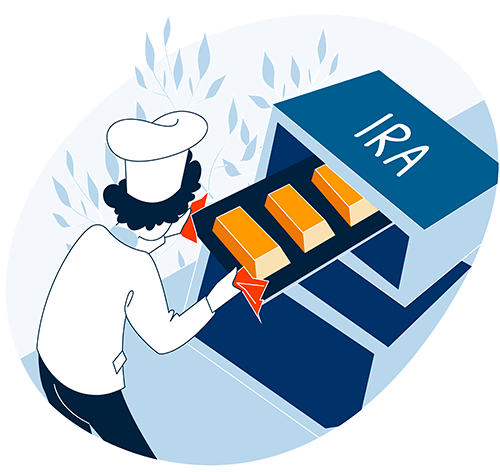
Who Owns the Most Gold Privately
Gold is a valuable metal, and it’s no surprise that everyone wants to own a piece of it. Right from individuals to countries, pretty much every single entity in the world recognizes how valuable gold is and desires to hold a stash of gold, either for the rainy day or the general allure of the yellow metal itself. Our article on countries with the maximum gold reserves and their continual desire to accumulate more or hold on to existing holdings is a real-world metric. It also hints that there’s only a finite supply of gold, and a country must have enough gold in its vaults or foreign reserves to redeem national currency or whenever its banking system needs stability.
The article linked above talked about official gold reserves in a central bank. In this write-up, we will discuss private gold ownership instead. Private holdings of gold are not insignificant by any means. If we were to tally up official gold reserves in the world's central banks and subtract the number from already mined gold figures, the official accounts would fall in the minority. Only a fifth of the gold already mined is in the vaults of central banks.

So, where is all that remaining gold? It’s clearly in private hands, but “private” is not one single entity like a central bank is or as organized. Let’s understand the landscape better, focusing on the following:
- The total gold mined worldwide
- The reasoning behind private entities owning gold
- Individuals with the largest gold reserves
- How tracking ownership of private gold is so complex and more
Read on to explore the labyrinthine pathways of private gold ownership and understand how the allure of gold transcends central banks and other official establishments.
Table of Contents
How Much Gold is in the World
According to the World Gold Council, more than 200,000 tonnes of gold have been mined to date. Close to two-thirds of the world’s gold was mined before 1950. And because gold is indestructible, all the gold taken out of the Earth’s crust continues to be around in some shape or form today and shall be for the foreseeable future. As stated earlier, only a minor portion of the gold is in a country’s gold reserves or central banks’ possessions, marked as “official gold holdings.”
The remainder is everywhere, mostly with individuals. Not all gold reserves in the world are public or open to scrutiny. Also, not all gold mined to date has likely been officially recorded. Therefore, it’s quite plausible there’s much more gold in the world than the World Gold Council reports suggest. And much of that unaccounted gold is in the hands of private entities.
Read more: How Much Gold There is in the World
Why Do Private Entities Invest in Gold?
A “private entity” could be a company or an individual, and their reasons for owning gold can, therefore, vary. Companies usually don’t hoard gold. Even if they do, their motivations are not very different from those of individuals.
People invest in gold to preserve their wealth since gold is inherently valuable and has maintained its worth over time. Even though gold prices fluctuate, they do not go up and down as vehemently as stocks or even the value of a national currency. Gold is not subject to devaluation and inflation. It is a solid hedge against inflation. In other words, gold market prices increase when a country’s currency erodes in value.
And all of the above gold attributes apply at the global level. Unlike fiat money, gold’s value is not restricted to certain borders. The universal appeal and acceptance of gold or the precious metal not dependent on an economy or government is the precious metal’s biggest bane, attracting individuals and institutions alike. It means gold can be converted into cash anytime, anywhere.
Financial attributes aside, individuals invest in gold for several cultural and psychological reasons. For centuries, the precious metal has been symbolically linked with wealth, prestige, and luxury. This creates an emotional bond, influencing an individual’s desire to buy and keep physical gold. Not to mention, gold is tangible, unlike financial instruments like stocks and bonds. The “physical” attribute of gold offers a feeling of security that people who are wary of intangible or digital investments value.
Additionally, with gold companies like Oxford Gold Group and Birch Gold Group offering a platter of services related to owning and investing in gold, buying and selling gold has never been more accessible or enticing for retail investors.
Individuals with the Largest Private Gold Reserves

The following are some of the biggest gold investors who swear by the precious metal and the gold industry in general, having profited millions (if not billions) investing in and trading the precious metal. They are among the most famous gold buyers who own some truly large gold reserves held privately, more than most national governments. These notable gold investors may have gold physically and through ETFs and other digital means.
- John Paulson
John Paulson is a hedge fund manager with arguably the biggest precious metal investments or the highest gold reserves by an individual globally. The Paulson & Co. president’s personal gold stash exceeds many countries’ gold reserves, such as Australia, Poland, Romania, etc. His top stocks are usually from the mining industry, such as Equinox Gold Corp., Seabridge Gold Inc., Yamana Gold Inc., SSR Mining Inc., AngloGold Ashanti Limited, etc.
Besides being known for his gargantuan gold possessions, the American billionaire also made the news for foreseeing the 2007 subprime mortgage crisis. After the financial crisis, Paulson invested heavily in gold-related and gold assets through his Paulson & Co. hedge fund. Needless to say, Paulson has been a strong and vocal proponent of physical gold bullion investing for long, mainly to tackle economic instability.
- Ray Dalio
Ray Dalio is a billionaire investor and the founder and co-chief of Bridgewater Associates, a company he founded in 1975. He held gold holdings worth nearly half a billion dollars in iShares Gold Trust and SPDR Gold Trust through his company in 2020. The firm increased its exposure to gold through ETFs (exchange-traded funds). The more than $400 million investment increased its SPDR Gold Trust holdings to $914.3 million from $600.6 million.
SPDR Gold, by the way, is the biggest gold-backed ETF in the world, boasting around 40 million ounces or 1,250 tonnes of gold in holdings. It’s one of the biggest names in the precious metals industry. Ray Dalio holds a small portion of Bitcoin in his portfolio but has much more gold as he’s a big proponent of the latter or believes in gold’s ability to safeguard wealth.
- Stanley Druckenmiller
Stanley Druckenmiller is an investing legend who, in 2005, predicted that the U.S. Federal Reserve Bank would catalyse a real estate crisis and economic failure. In 2015, Druckenmiller had over $292 million in the SPDR Gold Trust. Like Ray Dalio, Druckenmiller also has an affinity for cryptocurrency. But even though Druckenmiller held a strong view about Bitcoin in 2020 and continues to do so, having bought a chunk of the cryptocurrency, his gold holdings still are comparatively more massive than his other assets.
- Eric Sprott
Eric Sprott is another of the world’s biggest investors in gold. The Canadian billionaire investor has had massive investments in gold mining stocks of companies like Benchmark Metals, Labrador Gold, New Age Metals, and Ethos Gold, to name a few. Sprott founded Sprott Inc., an investment and asset management company focused on investments in natural resources. Sprott is a renowned advocate for precious metals investments, having invested majorly in physical precious metals such as gold and silver.
- Thomas Kaplan
Thomas Kaplan is an American businessman focused on investing in natural resources. Over the years, he has founded or chaired companies that were into discovering or producing precious metals. Kaplan holds major interests in NovaGold Resources and Gabriel Resources Ltd. These companies own many of the biggest proven gold resources globally. His commitment to gold and investment strategy earned him the “Gold’s Evangelist” name. By the way, Kaplan is also financially invested in historical and rare gold coins.
- Indian families
Although not individuals per se, Indian families have collectively amassed more gold than citizens of any other country. The Indian appetite for gold is world-renowned, and not telling them to buy gold is akin to asking the Chinese not to eat noodles. India’s gold imports amount to several hundred tonnes of gold annually, catering to its populace's large gold appetite. In 2019, Indians had accumulated gold close to 25,000 tonnes. It should now be more than that since gold is integral to the Indian cultural and investing psyche.
- Saudi Arabia’s Royal Family
The Saudi Arabian Royal Family is renowned for its riches. Unsurprisingly, they also hold more than a fair chunk of gold. From gold-plated paper towel dispensers to furniture decked with gold, the House of Saud uses gold in as many applications as possible. The Royal Family’s net worth is close to $1.4 trillion. A good chunk of that possession is gold, as the yellow metal holds cultural significance in the Arab community. The holdings are assumed to be primarily jewelry and valuable artifacts.
Tracking Private Ownership of Gold is Complicated
Tracking who owns the most gold privately is complex, to say the least, due to different factors, such as privacy concerns, offshore account usage, using trusts to conceal ownership, etc. Let’s discuss the aspects in more detail.
Private ownership of gold is not open to the same kind of official scrutiny as the gold reserves of a central bank or even the International Monetary Fund (IMF). Also, unlike the stock market or bonds, privately held gold can remain confidential, rendering it challenging to procure accurate information on how much gold is owned by whom. Individuals are not obligated to report their gold holdings to the concerned authorities.
Because financial privacy is dear, several individuals put their gold assets discreetly. Using offshore entities, trusts, pseudonyms, etc., are measures they employ to safeguard their identity. Offshore jurisdictions and accounts with robust privacy laws could further make private ownership tracking difficult. Some gold owners could buy and sell gold secretly. Keeping track of the changes in their gold ownership will be complex.
Not to mention, the world gold market is massive and fragmented. “Private ownership” isn’t one or two standard forms of owning gold. The term encompasses different forms of ownership (gold jewelry, coins, bars, etc.), rendering it highly complex to consolidate information on private ownership of gold across the various market segments.
Read more: Getting Started with Gold ETFs
Conclusion
Gold usually occupies a tiny portion of the average individual’s investment portfolio. That’s because, although not as risky as stocks and bonds, the yellow metal is not a growth driver. Therefore, allocating a significant chunk of a portfolio to gold investments is too conservative a move and only detrimental in the long run. Generally, five to 10% is considered an ideal allotment. Some gold investors could assign less than 5% or more than 10% of their portfolio to gold. But that boils down to their investment objectives. To learn more, read our article on the topic.
But it's doubtful current gold investors will stop investing in the metal or allot the existing share to other investment vehicles or newer investment channels such as cryptocurrency or NFTs. The new-age asset classes are too complex or “high brow” for the masses. Moreover, they have no inherent value or backing of anything with integral worth.
Gold is precious by nature, and continuing to hold some gold provides leverage to a savings or retirement portfolio that’s otherwise inundated with high-risk investments. That also means the number of people having the valuable and rare precious metal in their private vaults will either remain stable or grow. And with the popularity of gold IRAs, which provide easy and hassle-free gold purchase and storage options, people will only be further inclined to invest in physical gold.
Long story short, the share of private gold holdings will likely only increase going forward. And the quest to determine who owns the most gold privately and how much will only become more challenging.
FAQs
Does private gold ownership affect gold prices?
Yes, as more people buy and hold on to gold, there will be less gold supply, causing the prices to go up. If the private owners let go of their gold, the prices can be stabilized. But it’s hard to predict when and how much gold will re-enter the gold market from the grasp of individuals and how that will impact gold costs.
Do retail banks own gold?
No, retail banks and similar financial institutions usually do not own gold like a central bank usually does—for instance, the European Central Bank. Consumer banks are mostly custodians of the gold of their clientele and offer gold-related assets. Some may hold some gold in their kitty, but those are rare instances and purely subject to the tactics of the financial corporation.


